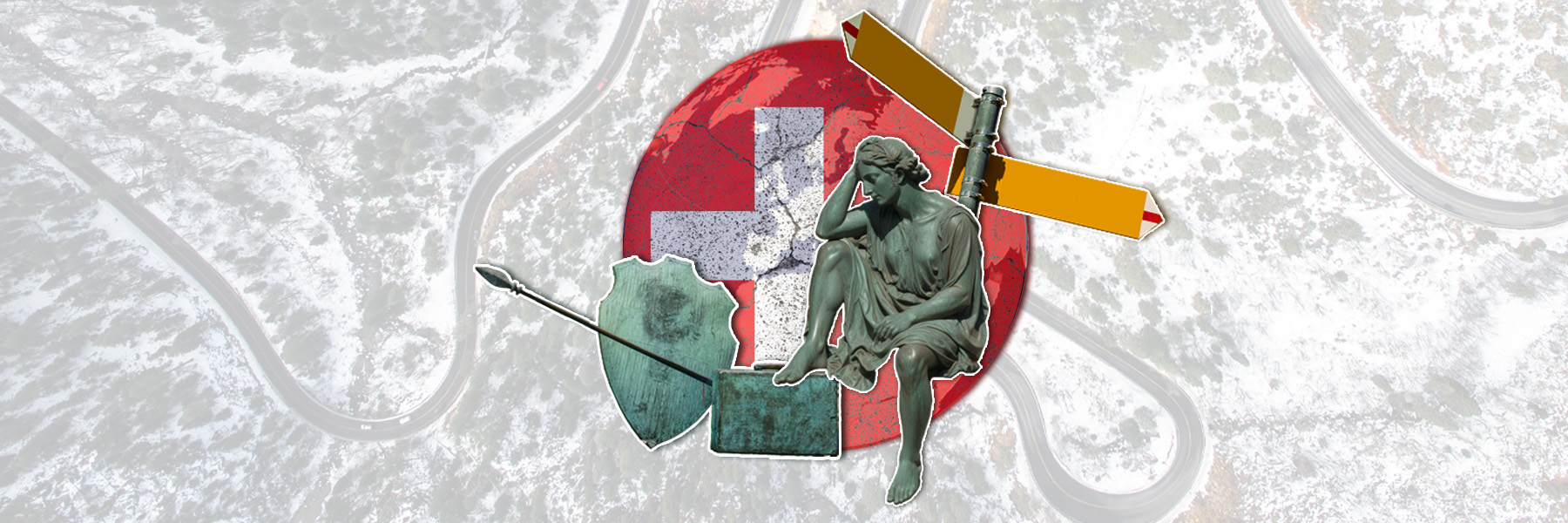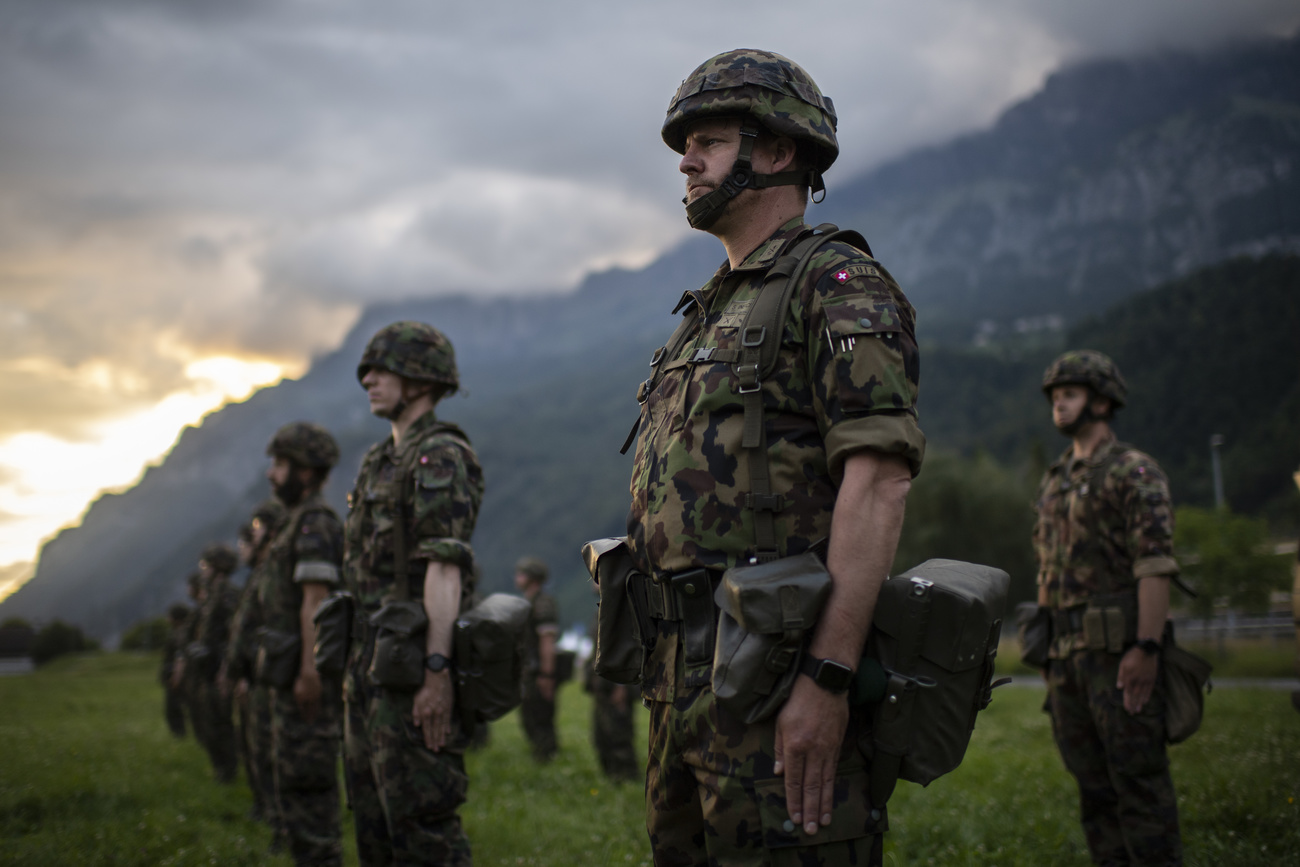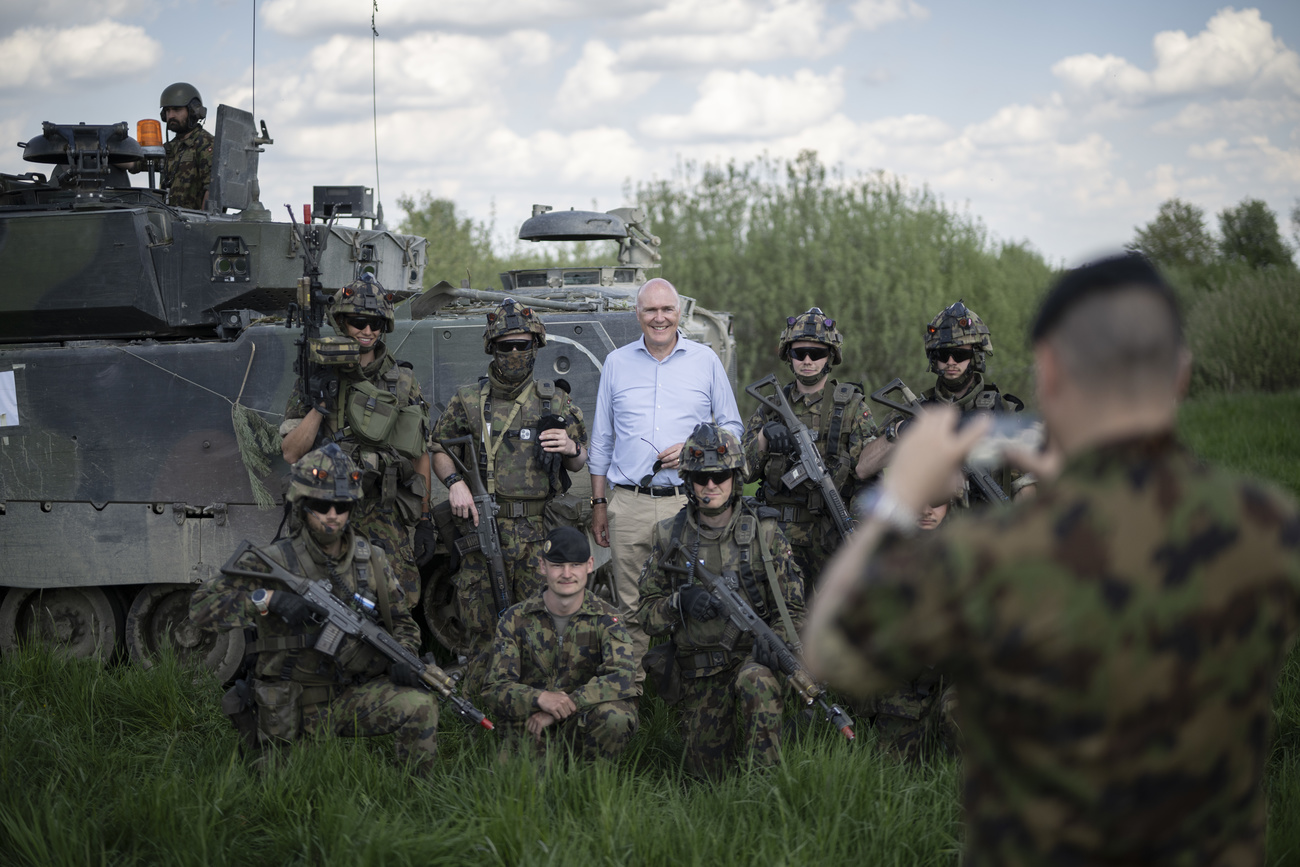
Switzerland mulls stronger ties with European defence structures

As the United States disengages from European security, the idea of a defence partnership with the EU is gaining ground in the Swiss parliament. Norway already took the plunge last year. The issue has rekindled debate on Swiss neutrality.
The world’s new geostrategic order is prompting Switzerland to consider a change of course in its defence policy.
In March the House of Representatives adopted a declarationExternal link calling on the government to take “concrete steps to strengthen security cooperation with Europe”. In mid-May, the House of Representatives’ security policy committee formalised this demand, by accepting a motionExternal link put forward by Social Democrat parliamentarian Fabian Molina.
The motion, which is to come before both houses of parliament, calls on the government to negotiate an agreement on security and defence with the EU. Specifically, the text urges Switzerland to strengthen its cooperation with the European partner states, as well as institutions such as the European Defence Agency and the Permanent Structured Cooperation framework, while maintaining its status as a neutral state.
“Enhanced cooperation with the EU is important for Switzerland’s security, at a time when the US government is pulling away from Europe’s common security architecture,” Molina argues. It would enable Switzerland to participate in joint arms purchases with the EU, thereby ensuring not just better prices, but also the interoperability of military equipment.
“An agreement would also help reduce our dependence on the United States,” he adds.
Such a partnership would include no obligation to provide mutual assistance, unlike agreements with NATO, Molina stresses. “Nor is there any question of conducting joint military exercises.”

More
What does the future hold for Swiss neutrality?
‘Creeping EU membership’
The idea has sent shock waves through the right-wing Swiss People’s Party, which is fiercely opposed to any rapprochement with Brussels. Jean-Luc Addor, a parliamentarian from that party, is convinced that Molina has a hidden agenda. “It’s a strategy for creeping EU membership, which is against Switzerland’s interests,” he says.
Addor is openly in favour of bilateral cooperation with neighbouring countries in the fields of military training and weapon procurement. He cites in particular a major exercise held in Austria with the Austrians and Germans in late April. But cooperation with a supranational organisation such as the EU or NATO would be “crossing a red line”. What’s more, an agreement of this kind would violate the principle of neutrality of the Swiss state, he believes.
Molina begs to differ. “Our status as a neutral state prevents us from taking part in an armed conflict or joining a military alliance. But it does not stop us from cooperating with our neighbours, particularly on civil matters.” In his view, a defence partnership with Brussels would constitute neither a breach of Swiss neutrality nor a step towards EU membership.
He is, however, less open to closer ties with NATO. Last year, he tabled a motionExternal link seeking to ban joint defence exercises with the body. “Participating in NATO military exercises held in accordance with article 5External link of the treaty is tantamount to exercising the alliance’s duty to assist,” he argues. Ironically, Molina stood alongside Addor in persuading the House of Representatives to accept the motion, which was ultimately rejected by the Senate.

More
Is Switzerland moving towards a European security alliance?
A ‘means of deterrence’ for Norway
Brussels already concluded a strategic defence partnership of this kind with Norway last year.
In a written statement, the Norwegian defence ministry’s state secretary, Andreas Flåm, said the agreement did not change Norway’s overall relationship with the EU. “It includes a fairly long list of areas of activity that could be the subject of further cooperation, including Norwegian participation in EU exercises and operations, maritime safety, defence industry initiatives, space activities and cyber and hybrid threats,” he wrote.

More
Our weekly newsletter on geopolitics
This partnership does not call into question Norway’s NATO membership, which remains the pillar of its national security. “It’s more of a programmatic document than a legally binding framework,” says Bruno Oliveira Martins, a researcher at the Peace Research Institute Oslo (PRIO). As he points out, Norway was already one of the non-EU countries with the closest links to EU security and defence policy. “The aim was to deepen this relationship and create more structures for dialogue and information exchange.”
This rapprochement also takes place against a backdrop of heightened tensions with Russia, with which Norway shares a 198-kilometre border in the Arctic. Since the invasion of Ukraine in February 2022, Moscow has stepped up its military activities in the region, reactivating some 50 Soviet-era bases.
“This partnership with the EU therefore also serves as a message of deterrence: it shows that Norway is not only a member of NATO, but that it is also fully integrated into the European security architecture,” Oliveira Martins says.
What is your opinion? Join the debate:
Edited by Balz Rigendinger. Adapted from French by Julia Bassam/ts.

In compliance with the JTI standards
More: SWI swissinfo.ch certified by the Journalism Trust Initiative































You can find an overview of ongoing debates with our journalists here . Please join us!
If you want to start a conversation about a topic raised in this article or want to report factual errors, email us at english@swissinfo.ch.